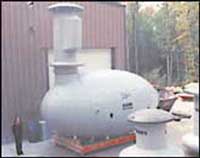What is Wrong With Arabs?
 Arabs are lagging in education, economy, democracy and freedom of expression, and computers. 2003—In Arab countries, with a combined population of 284 million, a “best seller” may have a print run of just 5,000 copies, due to censorship and other constraints on independent publishers. Translations of foreign works into Arabic lag far behind figures in the rest of the world: five times more books are translated yearly into Greek, a language spoken by just 11 million people, than into Arabic. Just 53 newspapers per 1,000 citizens are published daily in the region, compared to 285 papers per 1,000 people in the developed nations, and there are only 18 computers per 1,000 people in the Arab world, as compared to the global average of 78 per 1,000.
Arabs are lagging in education, economy, democracy and freedom of expression, and computers. 2003—In Arab countries, with a combined population of 284 million, a “best seller” may have a print run of just 5,000 copies, due to censorship and other constraints on independent publishers. Translations of foreign works into Arabic lag far behind figures in the rest of the world: five times more books are translated yearly into Greek, a language spoken by just 11 million people, than into Arabic. Just 53 newspapers per 1,000 citizens are published daily in the region, compared to 285 papers per 1,000 people in the developed nations, and there are only 18 computers per 1,000 people in the Arab world, as compared to the global average of 78 per 1,000.The first Arab Human Development Report in 2002 was a bombshell dropped onto the entire arab world. The report notes that while oil income has transformed the landscapes of some Arab countries, the region remains "richer than it is developed." Per capita income growth has shrunk in the last 20 years to a level just above that of sub-Saharan Africa. Productivity is declining. Research and development are weak or nonexistent. Science and technology are dormant.
Intellectuals flee a stultifying -- if not repressive -- political and social environment, it says.
Arab women, the report found, are almost universally denied advancement. Half of them still cannot read or write. The maternal mortality rate is double that of Latin America and four times that of East Asia.
The followup report in 2003 showed the situation to be no better. A group of Arab intellectuals issued a report yesterday that found the Arab world lacking in three areas they deemed fundamental to development: freedom of expression, access to knowledge and women's rights.
The group, criticized by Arab officials for a similar report last year, said the challenges caused by the deficiencies "may have become even graver" since 2002.
 After dismal reports in 2002, 2003, and 2004, the UN HDR appears to have given up on the arab world. Who can blame them? Since World War II, the Arab world has lagged the rest of the planet in economic growth. For example, 300 million Arabs, and all that oil, generate less economic activity than Spain, and its population of 40 million. The main problem has been bad government. Too many dictators, and too much government restrictions on the economy. Too much corruption and waste. Even higher oil prices don't help, as it simply provides more money to be wasted on consumption, rather than business investment.
After dismal reports in 2002, 2003, and 2004, the UN HDR appears to have given up on the arab world. Who can blame them? Since World War II, the Arab world has lagged the rest of the planet in economic growth. For example, 300 million Arabs, and all that oil, generate less economic activity than Spain, and its population of 40 million. The main problem has been bad government. Too many dictators, and too much government restrictions on the economy. Too much corruption and waste. Even higher oil prices don't help, as it simply provides more money to be wasted on consumption, rather than business investment.An Economist article, titled "Self-Doomed to Failure," captures the pathetic state of the arab world. The barrier to better Arab performance is not a lack of resources, concludes the report, but the lamentable shortage of three essentials: freedom, knowledge and womanpower. Not having enough of these amounts to what the authors call the region's three “deficits”. It is these deficits, they argue, that hold the frustrated Arabs back from reaching their potential—and allow the rest of the world both to despise and to fear a deadly combination of wealth and backwardness.
•Freedom. This deficit, in the UNDP's interpretation, explains many of the fundamental things that are wrong with the Arab world: the survival of absolute autocracies; the holding of bogus elections; confusion between the executive and the judiciary (the report points out the close linguistic link between the two in Arabic); constraints on the media and on civil society; and a patriarchal, intolerant, sometimes suffocating social environment.
The area is rich in all the outward trappings of democracy. Elections are held and human-rights conventions are signed. But the great wave of democratisation that has opened up so much of the world over the past 15 years seems to have left the Arabs untouched. Democracy is occasionally offered, but as a concession, not as a right.

....•Knowledge. “If God were to humiliate a human being,” wrote Imam Ali bin abi Taleb in the sixth century, “He would deny him knowledge.” Although the Arabs spend a higher percentage of GDP on education than any other developing region, it is not, it seems, well spent. The quality of education has deteriorated pitifully, and there is a severe mismatch between the labour market and the education system. Adult illiteracy rates have declined but are still very high: 65m adults are illiterate, almost two-thirds of them women. Some 10m children still have no schooling at all.
One of the gravest results of their poor education is that the Arabs, who once led the world in science, are dropping ever further behind in scientific research and in information technology. Investment in research and development is less than one-seventh of the world average. Only 0.6% of the population uses the Internet, and 1.2% have personal computers.
....•Women's status. The one thing that every outsider knows about the Arab world is that it does not treat its women as full citizens. The report sees this as an awful waste: how can a society prosper when it stifles half its productive potential? After all, even though women's literacy rates have trebled in the past 30 years, one in every two Arab women still can neither read nor write. Their participation in their countries' political and economic life is the lowest in the world.
Governments and societies (and sometimes, as in Kuwait, societies and parliamentarians are more backward than their governments) vary in the degrees of bad treatment they mete out to women. But in nearly all Arab countries, women suffer from unequal citizenship and legal entitlements. The UNDP has a “gender-empowerment measure” which shows the Arabs near the bottom (according to this measure, sub-Saharan Africa ranks even worse). But the UN was able to measure only 14 of the 22 Arab states, since the necessary data were not available in the others. This, as the report says, speaks for itself, reflecting the general lack of concern in the region for women's desire to be allowed to get on.
...With so many paths closed to them, some are now turning their dangerous anger on the western world.
Meanwhile in an ethnically divided Iraq with sectarian divisions, the first tentative steps have been taken toward democracy, as the rest of the arab world looks on with a wary curiousity. A few cautious voices believe that, in time, the Iraqi elections will put pressure on neighboring countries to democratize.
In Cairo, Hisham Qassem, chairman of a human rights organization and chief executive officer of a new Arab daily newspaper, believes that both the Iraqi and Palestinian elections have given impetus to democratic reform.
 "Once people feel there are positive effects from the democratic process, they will want the same. Especially countries like Egypt who felt they were ahead of Iraq but are now lagging behind,” he said. Many arabs must be wondering if it takes an emasculating invasion from abroad and low level civil war to bring democracy to an arab country.
"Once people feel there are positive effects from the democratic process, they will want the same. Especially countries like Egypt who felt they were ahead of Iraq but are now lagging behind,” he said. Many arabs must be wondering if it takes an emasculating invasion from abroad and low level civil war to bring democracy to an arab country.It takes more than democracy to bring the arab world out of the stone age. It will take economic reform. Since Saddam was tossed out in 2003, the economy has been governed by Western rules. As a result, GDP per capita doubled by the end of 2005, and the GDP is expected to grow another 49 percent by 2008. All this despite continued attacks by Sunni Arab rebels on oil facilities and other economic targets. It's much easier to start a business in Iraq now, even though there's still a lot of corruption. The big change is that now the corruption is illegal, and there is even progress in prosecuting the government officials who take bribes or try to shake down businessmen. Lebanon is the only other Arab state to run its economy in a Western fashion, and they have thrived.
It takes education reform and freedom of expression and the press. It will take implementation of full freedoms for women. Finally, it will take religious reform. Stone aged customs, traditions, and religious restrictions virtually guarantee that arabs will remain backward, laggards of the world.
Update: Here is more from a recent UN ILO report. Arabs living in the middle east and north africa are oddly resistant to modernisation and transitioning out of the stone age. Very strange, when you see how successful arabs can be when they migrate to a free environment. I suppose blaming the US and Israel will gain them at least another half century of stone age existence.
Labels: arab dysfunction, Islam




